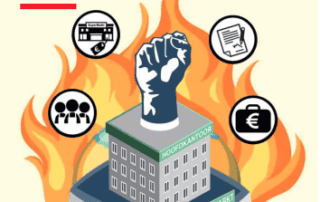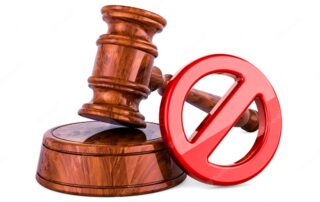Franchise agreement negotiations broken off
The District Court of Gelderland ruled on 6 May 2015 (ECLI:NL:RBGEL:2015:4708) on the question of whether a prospective franchisee and a franchisor had reached such a level of negotiation that the franchisor could no longer withdraw without being liable for damages.
The aspiring franchisee claims compensation on the basis of an unlawful act, consisting of – simplified – (i) the costs it had to incur in the context of the negotiation process (the negative contractual interest) and (ii) lost profit (the positive contract interest).
It has been established that the parties have negotiated the conclusion of a franchise agreement. The franchisor had stated at a very early stage that 9 steps would have to be taken in order to eventually become a franchisee. Step 5 is considered a provisional approval.
The aspiring franchisee goes through a number of steps, including training. Step 5, the provisional approval, is postponed. There does seem to be follow-up steps, but these appear to have been taken expressly at the urgent request of the prospective franchisee, while the franchisor has never indicated that it changed or intended to change the procedure in connection with this or that otherwise the importance of the provisional approval (step 5) was lost.
One of the next steps involved the location of the franchise location. The standard franchise agreement apparently assumed a branch in the Netherlands, while the prospective franchisee (also) proposed a branch location in Germany. The fact that the franchisor provided a standard franchise agreement does not mean that the franchisor was inclined to enter into deviating franchise agreements, which will be as well known in the relevant industry for large franchisors as the present one if it is known ex officio to the court, is common.
The shares in the franchisor are also taken over by another party. The new policy is that there will be no new franchisees. The franchisor also indicates that it no longer wishes to negotiate further with the prospective franchisee.
The court finds that the franchisor could not reasonably have given the prospective franchisee the impression at any time that she waived or wanted to waive the usual steps of the franchise process, in combination with the fact that there were actual deviations from this. The claim of the positive contract interest is rejected.
The court also sees no grounds for compensation of the negative contractual interest. After all, the fact that the procedure has continued, that the franchisee has been nominated to follow the training and that research has been done into suitable locations, has all happened, according to the witness statements and the documents submitted, because the aspiring franchisee wanted to speed up the procedure . This possibly led – the franchisor disputes this – to costs, while the franchisor was generally passive.
In negotiation processes between a franchisor and a prospective franchisee, mutual coordination and communication are of great importance in order to avoid disputes. Any reservations must be communicated at the earliest possible stage and must be repeated over and over again. In this way, mutual expectations can be managed and procedures such as these can be prevented.
Mr AW Dolphijn – Franchise lawyer
Ludwig & Van Dam Franchise attorneys, franchise legal advice. Do you want to respond? Mail to dolphijn@ludwigvandam.nl

Other messages
Post non-competition ban without a signed franchise agreement
Is a franchisee bound by a post-competition ban without a ...
Post non-compete clause in hard franchising
The summary proceedings judge of the Amsterdam District Court ...
Does an agreed rent indexation always apply?
Many entrepreneurs were confronted with a significant rent increase ...
Ludwig & Van Dam in Distrifood Magazine about the Franchise Act
Interview about the current obstacles for independent supermarket entrepreneurs and ...
No franchise agreement, but membership of a cooperative
In certain cases, agreements made in a franchise agreement may ...
Post prohibition of competition and transfer of the business to the life partner
A franchisee is a company. The franchisee and the private ...







